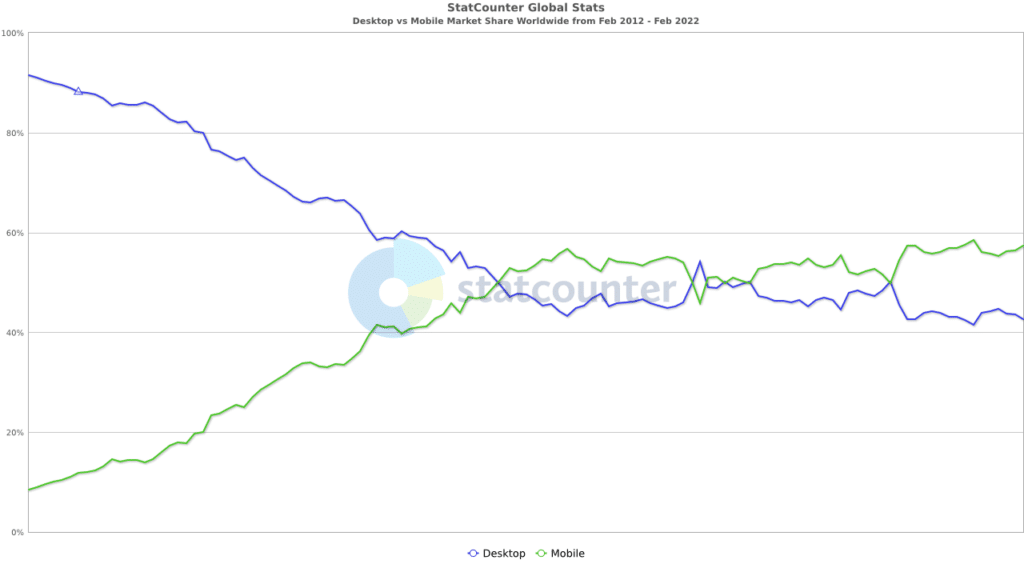
What is a static WordPress site? Why would you want one?
March 4, 2024If you’re in the process of building a new website or developing an existing one, do not underestimate the importance of including a contact form in one of your landing pages. You may have even wondered why a contact form is required on your site in the first place. At first glance, having a contact form may seem inconsequential, or even unnecessary. After all, why would your website need a designated contact form if your contact information is already clearly listed, including your company email address, phone number and even the contact information of your employees? If a user wants to contact you, they’ll just send you an email or pick up the phone, right? No contact form required.
While that may be the case for some users, disregarding the importance of including a contact form on your website is considered to be bad UI and UX practice, and precludes your business from benefiting from the many marketing, SEO and online security advantages that a contact form can offer. So, let’s dive into the top five reasons why your website needs to include a contact form, so you can avoid making this common web development mistake.
Having a Contact Form Is Required For Growing Your Mailing List
If you’re not a professional digital marketer, you may be surprised to learn that email marketing is one of the most efficient and cost-effective marketing strategies out there. Email marketing tends to have a huge ROI compared to other tactics like social media marketing and paid ads, which often require significant financial investments, extensive A/B testing and a substantial (billable) time commitment to fine tune before seeing tangible results. With a contact form, your website has a built-in data collection system giving you access to one of the most valuable lead generation resources a marketer can get from your target audience: their email addresses.
Users that reach out to you through your website’s contact form give you permission to add their email to your mailing list, which can then be used for email marketing campaigns and remarketing purposes. Furthermore, users who connect with your business via your website’s contact form are likely active consumers in your target market and already considering investing in your products or services, so nurturing this prospective customer relationship is a smart way to boost your sales and generate more valuable leads. Put simply, growing your mailing list by including a contact form on your website should be considered a critical component to your sales funnel, lead generation and digital marketing strategies.
Contact Forms Offer The Best User Experience
Having a contact form on your website can optimize user experience in a multitude of ways. Contact forms are an efficient way to encourage users to interact with your site, offering the most streamlined means of communication. With an integrated contact form, there is no need for users to open third-party applications or electronic mailing systems. Sometimes, these actions could be unavailable to users, especially if they are trying to contact your business from a mobile device. Third-party applications may need to be downloaded, updated or reinstalled before your prospective customer can contact you. Plus, once they’ve opened their inboxes, chances are they’ll be hit with a host of sidetracking information leading them to forget all about you and their intended inquiry.
According to Statcounter, web traffic from mobile devices has surged in the last decade, overtaking searches and traffic from desktops and tablets with almost 58% of the global market share. So, creating the most mobile-friendly user experience possible with a contact form should be a critical consideration in your UX strategy.

In addition, the tenets of UX guidelines tell us that websites should require the least amount of clicks as possible for a streamlined customer journey and reduced bounce rates. As a rule of thumb, the less clicks required for a user to complete an action, the better. And any action requiring more than three clicks might as well be dead in the water. So, with every click, your user becomes exponentially less likely to connect with your business, causing you to lose out on that lead generation opportunity and developing that prospective customer relationship. Ensuring that your users have an accessible and reliable way to contact your business by providing a one-click contact form directly on your site is an important aspect of providing your users with the best UX possible.
Contact Forms Enhance Your SEO Strategy
Google considers websites that have designated contact pages and contact forms to be more trustworthy, since they encourage more engagement and interaction with your site. As a result, websites that include contact forms tend to rank higher on SERPs, and most notably on Google, because they’re earning a higher Google Domain Trust Factor. Since Google tracks the number of page visits and the length of user interactions on your website, contact forms are a great way to encourage longer, more meaningful instances of engagement by creating more touchpoints, and in turn can increase organic traffic as your SERP ranking improves.
Contact pages and forms not only make your site more trustworthy, they signal to search engines that your website has more valuable content. Web design elements such as contact information, physical addresses, maps, phone numbers and contact forms are seen as offering users valuable information, thereby improving your SERP ranking in combination with other algorithm indexing factors. In fact, contact pages including contact forms are often some of the most highly ranking webpages due to their high Google Domain Trust Factors and the high value of their content.
Contact Forms Improve The Professionalism of Your Web Design
In addition to all the digital marketing advantages and essential UX recommendations, a well-designed contact form gives your contact page a more professional appearance and can even enhance the brand image of your business. Contact forms signal to users that you take visitor and customer feedback seriously, lending a sense of credibility and legitimacy to your brand that may even translate into better customer loyalty. Plus, strategically placing a contact form on your website so that it’s as visible and accessible as possible for users shows that you are open to developing a more meaningful customer relationship by answering questions and receiving feedback. Regardless of industry, every brand should strive for an air of professionalism, and integrating a user-friendly contact form in your web design is a simple way to achieve just that.
Contact Forms Are Required for Cyber Security
Last but not least, contact forms act as a helpful firewall protecting your website from cyber security threats like spam messages and bots. In fact, it’s generally not a good idea to publish different company email addresses directly on your website, because an infinite amount of bots are designed to crawl the internet searching for webpages with one or more company email domains in order to add them to different spam mailing lists. So, webpages that include content that looks like “[email protected]” and “[email protected]” in close proximity are an easy target.
So, are you convinced? There are tons of business savvy reasons why your website needs to include a contact form, ranging from high ROI marketing opportunities, lead generation tactics, better SEO strategy, heightened UX, an enhanced brand image and tighter cyber security measures. Too many web developers and business owners make the mistake of overlooking the pivotal role the humble contact form can play in their company’s growth and operations. Don’t be one of them.

